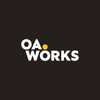The Open Access Button Launch Roundup
After hundreds of hours, many sleepless nights and a whole lot of coffee on November 18th, the Open Access Button launched it’s beta product. The Open Access Button is a tool designed to track and map paywalls, while helping the user get access to the research they need and building support for the open access movement.
This launch, live streamed across the world was timed with the release of a Guardian piece and the release of hundreds of timed Tweets and Facebook posts about the button. It is estimated this social media release allowed the button to reach around 1 million people via social media.
It is hard to adequately express how we felt about finally releasing the Open Access Button to the world — especially to such an overwhelming response. For students who spend an unfortunate amount of time sitting behind laptops it really was quite something.
One thing of note was meeting a random guy (who turned out to be a physician) on the streets of Berlin who knew what the Open Access Button was. This on top of amazing comments and opportunities from the European Commission and the Head of the Max Planck Society, this is one of many surreal moments of the launch week that we’re still trying to process.
With thanks to…
I hope we have already expressed just how much of a team effort it has been to get to this point. Without the tireless work by the team’s developers we’d never had made it past words on paper, without the work of the new team of students on the project the launch would’ve have been half of what it was. Without the help of Nick Shockey and Nicole Allen we’d never have pulled off anything as good as we did. Finally, without Cameron Stocks, the often unmentioned but nonetheless important founder that now contributes on our steering committee as Medsin UK National Director the project may not even exist.
Final Notes from Berlin11 and #oabuttonlaunch
We are very happy to be sitting on the other side of a mind-blowing launch, which really did exceed our expectations. However, let the tool itself not be judged by it’s launch.
With over a thousand paywalls hits, and over 2000 users we’ve got a long way to go on our mission. But, there are hints at the potential of things to come. We designed the tool to allow users to tell their story — what we hadn’t anticipated was that when a user hits several paywalls they would tell a much richer — more powerful story. We have seen patients trying to find information on their symptoms, and their treatments. We have seen cancer researchers repeatedly denied access to research, we’ve seen teachers trying to teach and students doing their homework.
The tool, and the project, will be a success when we have created a tool which can facilitate the world telling it’s stories of hitting paywalls and built a dataset which can’t be ignored. We don’t think we’ve created a tool which can do that yet — and we need the help of the community, of you, to do it. If you have any suggestions or help you can offer, get in touch at openaccessbutton@medsin.org
Finally, a thought from the close of Berlin 11. Berlin 10 ended noting that the movement should try and engage students more, this resulted in the Berlin 11 Satellite conference for student and early stage researchers. From where we sat, Berlin 11 ended with the strong message from Heather Joseph, and echoed by others that Students and Early Stage Researchers must not just be engaged, but made central to the work of the movement. Students are going to inherit the scholarly publishing system currently being created — and students are extremely passionate, powerful advocates for the movement. We look forward to seeing what will result from this.
Wait, one final thing
Hopefully many of you are wondering what’s going to happen now!? We are absolutely, unequivocally not done yet. Immediately, as suggested by Cameron Neylon of PLOS, we’re going to (try to) get some sleep and (try to) take a break. The team will then be working hard to support and make the most of the current tool. But we’ll also be looking to the future, what you see now is just a taster of what is to come. We’ll be looking to the community to see what the next edition of the tool should look like and then finding the funding and developers to build it, launch it, and support it.
This make might take a while — but there is much, much more to come.
Trust us.
- Joseph Mcarthur and David Carroll
AKA “The Button Boys”

